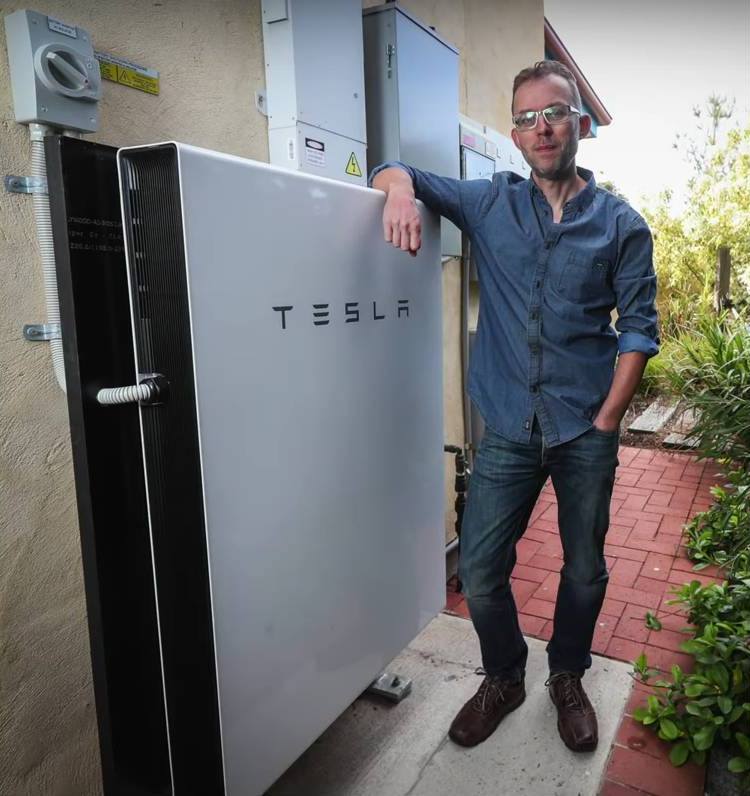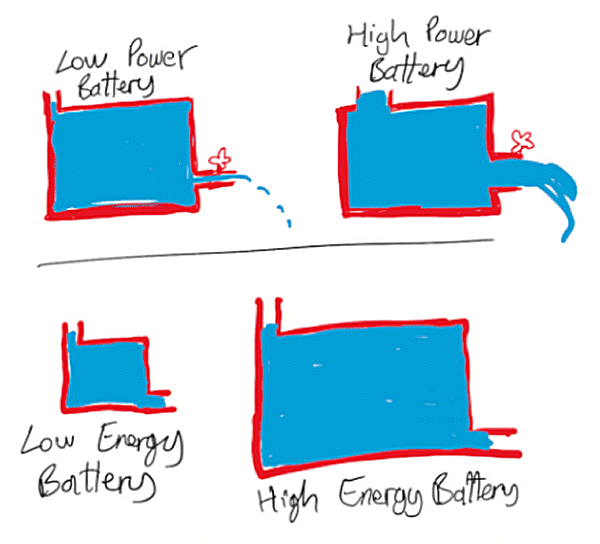If you’re considering a solar battery for your home, before making a purchase decision you should consider how much power it can provide as well as how much energy it can store. Finn explains the difference in this video and transcript.
Transcript:
If you don’t know the difference between power and energy, watch my previous videos– it’s really important (note: or check out this article).
Now, here’s why energy and power are important when you’re buying a battery. A battery stores energy. The size of the battery is determined by how much energy it stores; so the size of a battery is measured in kilowatt-hours.

This is the Tesla Powerwall 2 – it is a thirteen and a half kilowatt hour battery. It stores thirteen and a half kilowatt hours of energy, but it also has a power rating. The power rating is how quickly you can get the energy in and how quickly you can get the energy out. In other words, how quickly it charges and discharges. The Powerwall 2 charges and discharges at five kilowatts, so it’s a thirteen and a half kilowatt hour battery with a power rating of five kilowatts. Now, let’s think about how that affects a battery.

I’m using the analogy of a bucket storing water for a battery storing electricity. Top left, we have a low-power battery. It stores a certain amount of energy. As you can see, because the inlet and the outlet are quite small, you can only dribble the energy in and dribble the energy out.
Top right, we have a high-power battery. It stores the same amount of energy as the first one, but the inlets and the outlets, or the wires going in and out, are much fatter – so you can push water in at a much higher rate and you can get the water out at a much higher rate. You can charge it quickly and you can discharge it quickly.
Bottom left, we have a low-energy battery, so now we’re looking at the size of the battery. It’s quite small, so it can’t store much water – it can’t store much energy. Then we have a high-energy battery. It stores a lot of water, a lot of electricity.
So, they’re the four types of battery depending on whether you’re looking at power or energy.
Power And Energy Both Important Factors
Now, kilowatt hours are obviously important when you’re buying a battery because they determine how much energy you can store; i.e., how long it will last; how much energy it will deliver overnight.
But power is important too. If the power is too low, you’re going to struggle to charge it because your solar power system at times will be producing more power than the battery can take in. And you will struggle to power your home because at times your home will need more power than the battery can deliver.
So, look at both power and energy when buying a battery.
For more information on home energy storage and solar power, check out Finn’s “The Good Solar Guide” – the entire book is free to read online.

 RSS - Posts
RSS - Posts



Your blog is interesting as always. I just noticed in the photo above of the battery that it is mounted on a concrete plinth rather than on pavers. Is that because it can’t/couldn’t be attached to the wall? Is this something that needs to be considered for the install?
Pretty pictures, Finn. However, at the end of the day it’s STILL ‘water in-water out’, and the blue stuff “stored” in each ‘battery’ ~ regardless of size ~ is STILL just water…..not ‘water-hours’.
If it actually WAS water, you wouldn’t call it ‘water-hours’, would you?
Why would anyone bother to complicate a basic MECHANICAL process with all the “really important” gobbledegook?
Have a good day.